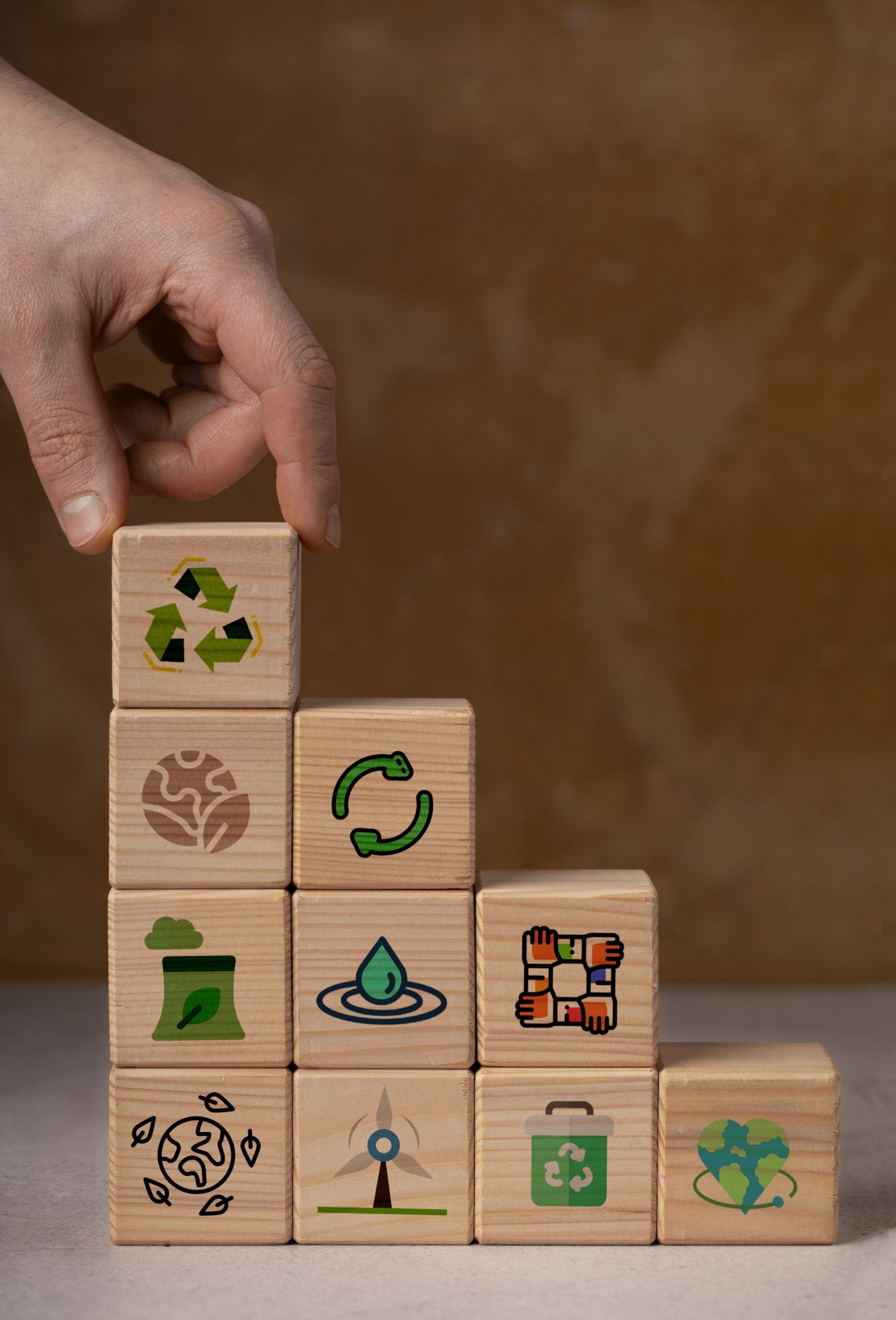
The Sustainable Development Goals (SDGs), adopted by all United Nations Member States in 2015, represent a global call to action to address a range of critical social, economic, and environmental challenges. These 17 interconnected goals aim to end poverty, protect the planet, and ensure prosperity for all by 2030. As the world collectively works towards achieving these goals, UAE companies have been actively adapting and aligning their strategies with the SDGs. In this article, we explore how businesses in the United Arab Emirates (UAE) are embracing sustainable development goals.
Understanding the SDGs
The SDGs cover a wide range of objectives, including poverty eradication, zero hunger, quality education, gender equality, clean water and sanitation, affordable and clean energy, and climate action, among others. They provide a comprehensive framework for addressing some of the most pressing global issues while promoting inclusivity and sustainability.
UAE’s Commitment to the SDGs
The UAE has been proactive in its commitment to the SDGs. The government has recognized the importance of these goals and has made significant efforts to integrate them into national policies and strategies. UAE Vision 2021, for instance, aligns with several SDGs, focusing on innovation, economic diversification, and environmental sustainability.
How UAE Companies are Adapting
Challenges and Opportunities
While UAE companies have made significant strides in aligning with the SDGs, challenges persist. These include balancing economic growth with environmental sustainability, addressing income inequality, and ensuring responsible consumption and production. However, these challenges also present opportunities for innovative solutions and partnerships.
Circular Economy Initiatives in UAE Businesses
Many UAE businesses are reevaluating their supply chain practices to reduce their environmental impact. This includes sourcing materials from sustainable and local suppliers, optimizing transportation routes, and adopting just-in-time inventory management. By doing so, companies not only reduce their carbon footprint but also improve efficiency and reduce costs.
Waste reduction and recycling initiatives are at the forefront of the circular economy movement in the UAE. Companies are investing in advanced waste management systems, such as recycling facilities and waste-to-energy technologies. Additionally, businesses are implementing recycling programs within their offices and facilities to encourage employees to participate in waste reduction efforts.
To promote circularity, businesses in the UAE are increasingly focusing on extending the lifecycle of their products. This involves designing products with durability in mind, offering repair and maintenance services, and encouraging customers to trade in or refurbish old products instead of discarding them. By prolonging product lifecycles, companies reduce the overall demand for new resources and minimize waste generation.
Circular economy initiatives often involve collaboration between businesses, government entities, and non-profit organizations. In the UAE, public-private partnerships and industry collaborations are common, with stakeholders working together to develop and implement circular economy strategies. These collaborations facilitate knowledge sharing and collective action to address sustainability challenges.
Educating consumers about the importance of the circular economy is essential for its success. UAE businesses are actively engaging with their customers through awareness campaigns and educational programs. By encouraging responsible consumption and disposal, companies are fostering a culture of sustainability among the UAE population.
Lastly, UAE businesses benefit from government support and regulations that encourage the adoption of circular economy practices. The UAE government has introduced policies and incentives to promote sustainability, including tax incentives for green businesses and regulations to reduce single-use plastics.
Sustainable Supply Chain Management in UAE Businesses
Ethical Sourcing and Responsible Procurement
UAE businesses are placing greater emphasis on ethical sourcing and responsible procurement practices. This involves selecting suppliers who adhere to environmentally friendly and socially responsible standards. Companies in the UAE are increasingly considering the environmental and social impacts of their supply chain partners and are working to ensure that their products are sourced in an ethical and sustainable manner.
Local Sourcing and Reduced Transportation
To minimize their carbon footprint and support local economies, many UAE companies are favoring local sourcing whenever possible. By reducing the distance goods need to travel, businesses can lower transportation-related emissions and decrease their reliance on fossil fuels. This not only benefits the environment but also enhances supply chain resilience.
Energy-Efficient Logistics
Logistics operations are a significant component of supply chains and can have a substantial impact on a company’s environmental footprint. UAE businesses are investing in energy-efficient transportation methods, such as using hybrid or electric vehicles, optimizing route planning to reduce fuel consumption, and adopting eco-friendly packaging to minimize waste.
Green Warehousing and Storage
Efforts to make supply chains more sustainable extend to warehousing and storage facilities. UAE companies are implementing green warehousing practices by using energy-efficient lighting, heating, and cooling systems, as well as exploring renewable energy sources for their facilities. They are also employing advanced inventory management systems to reduce excess stock and minimize waste.
Sustainable Tourism
Tourism is a significant industry in the UAE, and efforts to make it more sustainable are gaining momentum. Businesses in the hospitality sector are implementing eco-friendly practices such as energy-efficient building designs, water conservation, and waste reduction measures. These initiatives not only benefit the environment but also enhance the country’s image as a responsible tourist destination.
Government Support and Regulations
Lastly, UAE businesses benefit from government support and regulations that encourage the adoption of circular economy practices. The UAE government has introduced policies and incentives to promote sustainability, including tax incentives for green businesses and regulations to reduce single-use plastics.
Renewable Energy Practices in UAE Companies

-
Solar Power Generation
One of the most prominent renewable energy sources in the UAE is solar power. The country enjoys abundant sunlight throughout the year, making it an ideal location for solar energy generation. UAE businesses are harnessing this natural resource by installing solar panels on their rooftops and properties. Solar power not only reduces electricity costs but also lowers greenhouse gas emissions, contributing to a cleaner and more sustainable energy mix.
-
Wind Energy Investments
While the UAE is primarily known for its sunny weather, there are regions in the country where wind energy potential exists. Some companies are investing in wind turbines to harness wind power for electricity generation. Wind farms and turbines are becoming more common, and these investments contribute to diversifying the UAE’s renewable energy portfolio.
-
Energy Efficiency Measures
Renewable energy practices aren’t limited to generating electricity from clean sources. UAE companies are also focusing on energy efficiency measures to reduce overall energy consumption. This includes retrofitting buildings with energy-efficient lighting, HVAC systems, and smart technologies that optimize energy use. By improving energy efficiency, businesses lower operational costs and decrease their reliance on traditional energy sources.
-
Sustainable Building Design
In line with energy efficiency, UAE companies are increasingly adopting sustainable building design principles. Green building practices involve designing and constructing structures that are energy-efficient, use renewable materials, and incorporate environmentally friendly features. These initiatives not only reduce energy consumption but also create healthier and more comfortable working environments for employees.
-
Waste-to-Energy Solutions
Waste-to-energy technologies are gaining traction in the UAE. Companies are exploring ways to convert organic waste materials into renewable energy sources, such as biogas or biofuels. This approach not only helps in waste management but also generates clean energy, promoting a circular economy and reducing the environmental impact of waste disposal.
-
Investment in Green Technology
UAE businesses are actively investing in green technologies and research and development initiatives related to renewable energy. This includes exploring innovative solutions in areas such as energy storage, grid management, and electric vehicle charging infrastructure. By supporting the development of green technologies, UAE companies contribute to the growth of the renewable energy sector.
-
Carbon Offsetting and Sustainability Goals
Many UAE companies are setting ambitious sustainability goals, including carbon neutrality targets. To achieve these goals, businesses invest in carbon offset projects, such as reforestation and renewable energy projects, both within and outside the country. Carbon offsetting allows companies to balance their emissions by supporting initiatives that reduce or capture an equivalent amount of greenhouse gases from the atmosphere.
-
Public Awareness and Education
Some UAE companies are actively engaging with the public to raise awareness about renewable energy and its benefits. Educational initiatives and outreach programs help inform the community about the importance of clean energy sources and encourage individuals to make sustainable choices in their daily lives.
-
Government Support and Incentives
The UAE government plays a pivotal role in promoting renewable energy adoption among businesses. Various incentives, subsidies, and favorable regulations are in place to encourage companies to invest in clean energy technologies. These measures include feed-in tariffs, tax incentives, and permits for renewable energy projects.
Sustainable Supply Chain Management in UAE Businesses

Renewable Energy Investments
One of the most notable climate action initiatives in the UAE is the significant investment in renewable energy sources. Companies in the UAE are increasingly diversifying their energy portfolios by investing in solar and wind energy projects. These initiatives aim to reduce carbon emissions and dependency on fossil fuels. For instance, the development of massive solar parks, such as the Mohammed bin Rashid Al Maktoum Solar Park, showcases the commitment to renewable energy.
-
Energy Efficiency Measures
Energy efficiency is a cornerstone of climate action, and UAE corporations are implementing various measures to reduce energy consumption. This includes retrofitting buildings with energy-efficient technologies, implementing LED lighting systems, optimizing heating, ventilation, and air conditioning (HVAC) systems, and adopting smart building management systems. These efforts not only reduce greenhouse gas emissions but also result in cost savings.
-
Carbon Neutrality Commitments
Some UAE corporations are setting ambitious goals to achieve carbon neutrality. They are actively working to reduce their carbon emissions through a combination of energy efficiency, renewable energy adoption, and carbon offsetting initiatives. Achieving carbon neutrality demonstrates a commitment to mitigating climate change impacts.
-
Sustainable Supply Chain Management
Companies in the UAE are recognizing the importance of sustainable supply chain management. They are implementing green procurement practices, working with suppliers to reduce their environmental impact, and sourcing materials responsibly. By extending sustainability efforts throughout their supply chains, businesses can reduce their overall carbon footprint.
-
Waste Reduction and Recycling
Waste reduction and recycling programs are becoming increasingly common in UAE corporations. Businesses are implementing comprehensive waste management strategies that include recycling, composting, and waste-to-energy solutions. These initiatives reduce landfill waste and decrease the environmental impact of waste disposal.
-
Sustainable Transportation
The transportation sector is a significant contributor to greenhouse gas emissions. UAE corporations are taking steps to reduce the carbon footprint of their transportation activities. This includes adopting electric vehicles (EVs) for their fleets, offering incentives for employees to use public transportation or carpool, and investing in EV charging infrastructure.
-
Green Building Practices
Green building practices are gaining prominence in the UAE’s corporate sector. Companies are constructing new buildings and retrofitting existing ones to meet green building certification standards, such as LEED (Leadership in Energy and Environmental Design) and Estidama. These practices prioritize energy efficiency, water conservation, and sustainable materials.
-
R&D and Innovation
Many UAE corporations are investing in research and development (R&D) to develop innovative solutions for climate action. This includes technologies for carbon capture and storage, sustainable agriculture practices, and novel ways to reduce emissions in industrial processes. R&D efforts contribute to technological advancements that can benefit both the UAE and the global community.
-
Stakeholder Engagement and Reporting
Transparency and engagement with stakeholders are essential components of climate action. UAE corporations are increasingly reporting on their sustainability efforts and progress, sharing their climate action plans with investors, customers, and the public. Engaging stakeholders helps build trust and accountability.
-
Partnerships and Collaborations
Collaborative initiatives are crucial in addressing climate change. UAE corporations are forming partnerships with governmental bodies, non-governmental organizations (NGOs), and other businesses to pool resources and knowledge. These collaborations enable collective action and more significant impact in reducing greenhouse gas emissions.
The UAE’s corporate landscape is undergoing a significant transformation as businesses respond to the climate crisis with urgency and innovation. Through investments in renewable energy, energy efficiency, carbon neutrality commitments, and sustainable supply chain management, UAE corporations are demonstrating their determination to be part of the solution.
Additionally, waste reduction, recycling, sustainable transportation, green building practices, and R&D initiatives reflect a multifaceted approach towards sustainability. These efforts not only reduce carbon emissions but also enhance energy efficiency and create a culture of environmental responsibility.
Collaborations, stakeholder engagement, and transparent reporting underscore the UAE’s commitment to collective action and accountability in the battle against climate change. The UAE’s corporate responses serve as a testament to its vision of a greener, more sustainable future, and its contributions will undoubtedly have a positive impact not only regionally but on the global stage as well. As the world grapples with the challenges posed by climate change, the UAE’s corporate initiatives stand as a beacon of hope and a model for others to follow in the pursuit of a more sustainable and resilient planet.
Nullam eleifend neque ac sapien scelerisque aliquam id sit amet ligula. Praesent quis sapien sit amet felis egestas auctor eget in neque. Donec in imperdiet quam, et dignissim lectus. Integer nec lacus efficitur, eleifend nisi nec, semper risus. Sed rutrum a neque ac hendrerit. Praesent consequat arcu euismod mattis mollis. Ut nunc ligula, ornare quis pharetra at, porta nec diam. Sed est quis mi fermentum dapibus. Cras augue urna, blandit vel urna eu, dictum volutpat nisi. Fusce in posuere massa.
